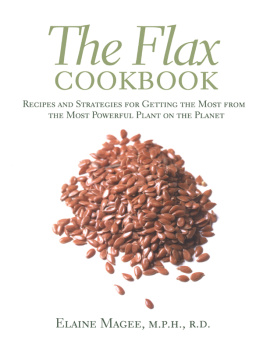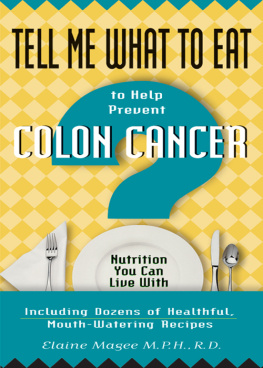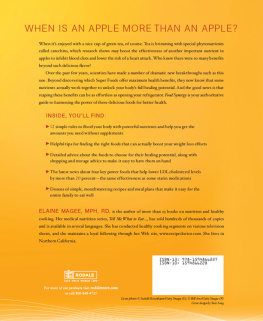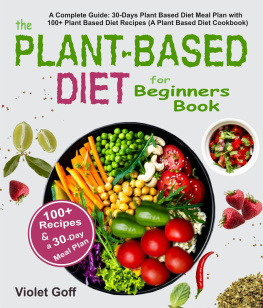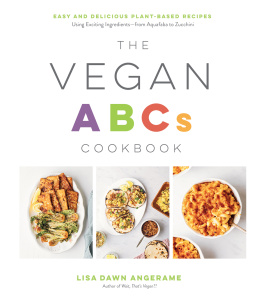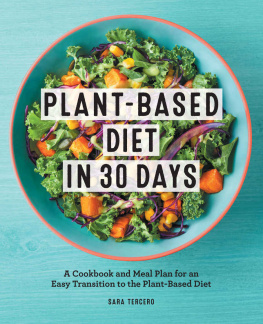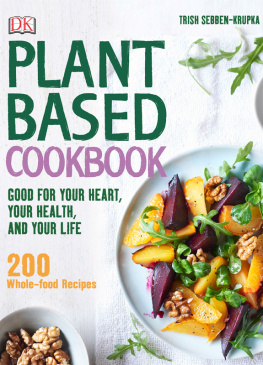Elaine Magee, M.P.H., R.D. is a regular contributor to Womans Day, Parenting, and Family Fun magazines with occasional features in Cooking Light and Fitness magazines. She is the author of more than twenty books, including Tell Me What to Eat if I Have Diabetes, Tell Me What to Eat if I Have IBS, Tell Me What to Eat if I Have Acid Reflux, Eat Well for a Healthy Menopause, and The Recipe Doctor. She also has a recipe column called The Recipe Doctor, which is syndicated by Knight Ridder Tribune Wire Service and appears in newspapers across the country. Magee lives with her family in California.
The Flax
COOKBOOK
Recipes and Strategies
to Get the Most from the
Most Powerful Plant on the Planet
E LAINE M AGEE, M.P.H., R.D.
M ARLOWE & C OMPANY
N EW Y ORK
T HE F LAX C OOKBOOK:
Recipes and Strategies to Get the
Most from the Most Powerful Plant on the Planet
Copyright 2002 by Elaine Magee
Published by
Marlowe & Company
An Imprint of Avalon Publishing Group Incorporated
161 William Street, 16th Floor
New York, NY 10038
All rights reserved. No part of this book may be reproduced in whole or in part without written permission from the publisher, except by reviewers who may quote brief excerpts in connection with a review in a newspaper, magazine, or electronic publication; nor may any part of this book be reproduced, stored in a retrieval system, or transmitted in any form or by any means electronic, mechanical, photocopying, recording, or other, without written permission from the publisher.
Library of Congress Control Number: 2002113808
ISBN 10: 1-56924-507-X
ISBN 13: 978-56924-507-1
eBook ISBN: 9780786730629
Designed by Pauline Neuwirth, Neuwirth & Associates, Inc.
Printed in the United States of America
Distributed by Publishers Group West
This book is dedicated to my amazing and loving father, Don (1922-2002).
Papa, your big heart, abundant creativity, and sheer joy of living are a constant inspiration to me. My heart is full with love and memories of younow and always.
Introduction
T HE C LOSEST T HING TO A M AGIC B ULLET
N INETY-NINE CENTS a pound. Thats the price of what is arguably the most powerful plant food on the planet. Flaxseed isnt newits been around for centuries. Its not exotic its an amber-colored seed the size of a sesame seed. You dont even have to choke it downit actually has a pleasant, nutty taste. Who says you cant get anything for a buck anymore?
Flaxseed must be natures best-kept secret. Heres this wonderful plant food that boasts not one but three nutritional attributesboth types of fiber, plus phytoestrogens called lignans, and a plant form of omega-3 fatty acidsyet no one knows about it. Sure, some people have started hunting down flaxseed and adding it to their smoothies, hot oatmeal, and breadbut not many. All you have to do is ask the people around you. Your average person doesnt even know what flaxseed looks like, let alone that it offers an array of essential nutrients. Flaxseed wasnt even being studied by the scientific community until about a decade ago.
CURRENT research supports several health benefits from eating flax seed including a lower risk of heart disease, cancer prevention, management of autoimmune disorders, and relief of constipation.
F LAX C OUNCIL OF C ANADA
I have spent the past few years writing the Tell Me What to Eat medical nutrition series (Career Press), covering everything from diet, menopause, and type 2 diabetes to eating to prevent breast and colon cancer. No matter which book I worked on, I kept coming across strong, accumulating scientific evidence about the benefits of this itty-bitty seed called flax. Well, you dont have to hit me over the head more than onceit got my attention.
Im not one to promote magic bullets; Im a firm believer in looking at your food intake as a whole. But truly, if there were an almost panacea out there in Nutrition Landthis would be it. The scientific evidence only continues to accumulate on flax-seed and the momentum builds with each year of research. What is it about flax that makes it so magical?
T HINKING O UTSIDE THE F LAXSEED B OX
U LTIMATELY THIS IS a flaxseed cookbook, so in addition to bombarding you with the latest information about flaxseed, I am also serving up an assortment of flaxseed recipes. Now, I fully expect that some of you will prefer the easier method of adding ground flaxseed to your smoothies, bread, and muffinswhich works just as well. In fact, there are ample recipes to satisfy this preference in chapters .
Others will be willing to push the flaxseed envelope and try flaxseed recipes for everything from appetizers to entrees and even desserts. If you are in this latter category, I hope you will feel that you have found the Promised Land of flax as you thumb through chapters .
While working on this book, my family came to expect flaxseed in almost everything I cooked up; any food that wasnt white as snow was suspect. But I still managed to surprise them quite often. When my girls drank their Mocha-ccino Freeze (page 72) and told me how much they liked it, I quickly made my flaxseed confession.
Fast Flax Overview
THE FLAX COOKBOOK goes into great detail about whats nutritious about flax, and what the scientific evidence is thus far, and provides 101 facts about flax and 85 recipes covering everything from appetizers to dessert. But heres a fast flax overview:
Flaxseed is an actual seed grown mainly in Canada and the Dakota states. It looks like a brown sesame seed. There is also a lighter color variety of flaxseed called golden flax. It has been around for thousands of years, and when ground (you need to grind it before you eat it, otherwise it passes through your system and you dont get all of its nutritional attributes) it looks a little like wheat germ, but has a nutty flavor.
There is much to report about flaxs potential health benefits, based on the extensive studies that have already been conducted with rats and humans, with many more going on as you read this. The future looks bright for flaxseed. But many scientists are waiting for more evidence before officially recommending it.
At the level of 1 to 2 tablespoons of ground flax a day, there dont appear to be any negative health consequences to flaxseed consumption, and there are potentially many benefits. These include:
- Possible cancer prevention and reduction of tumor growth (such as breast, prostate, and colon)
- Reduced risk of heart diseasestudies suggest that flax lowers the risk of blood clots and stroke, and cardiac arrhythmias, along with lowering total and LDL cholesterol and triglycerides, and even blood pressure
- Better regulation of bowel functions, and prevention of constipation

